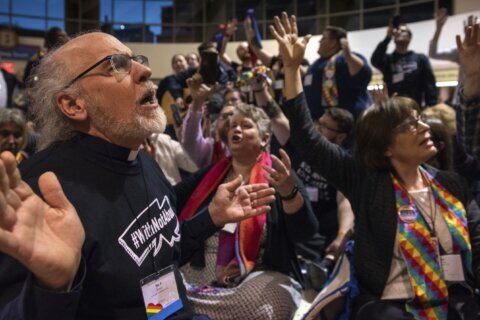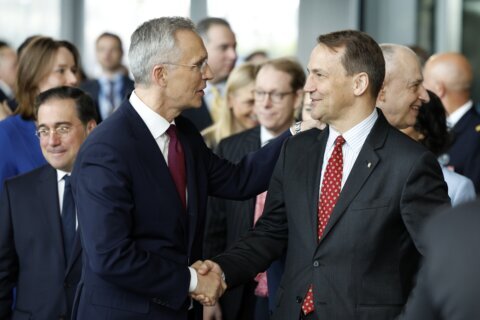MOSCOW (AP) — A court in Moscow on Monday sentenced another ally of imprisoned opposition leader Alexei Navalny to 1½ years of parole-like restrictions in a controversial case targeting opposition supporters in the wake of mass protests earlier this year.
Kira Yarmysh, Navalny’s spokeswoman and close associate, was found guilty of inciting people to violate coronavirus restrictions. She was barred from attending mass events, traveling outside of Moscow and the outlying region or moving without informing law enforcement. Yarmysh will also have to check in with police once a month.
Yarmysh’s lawyer, Veronika Polyakova, told the Interfax news agency the defense would appeal the verdict. It came less then two weeks after another top ally of Navalny, Lyubov Sobol, was convicted on the same charges and sentenced to 18 months of similar restrictions. Ten days ago Navalny’s brother Oleg was also found guilty in the case and handed a one-year suspended sentence.
The case against several allies of Navalny was launched shortly after nationwide protests over his arrest and jailing rocked Russia all across its 11 time zones on Jan. 23.
Navalny, Russian President Vladimir Putin’s most ardent political foe, was arrested a week before that upon returning from Germany, where he spent five months recovering from a nerve agent poisoning that he blames on the Kremlin — an accusation rejected by Russian officials.
In February, Navalny was ordered to serve 2½ years in prison for violating the terms of a suspended sentence from a 2014 embezzlement conviction that he dismissed as politically motivated.
His arrest and jailing sparked a wave of mass protests that appeared to be a major challenge to the Kremlin. The authorities responded with mass arrests of demonstrators and the criminal prosecutions of Navalny’s closest associates.
Sobol and others were accused of inciting people to break coronavirus regulations by urging them to join the protests.
The crackdown on Navalny’s team didn’t stop there. In June, a court outlawed the Foundation for Fighting Corruption and a network of Navalny’s regional offices as extremist organizations. The designation barred people associated with the groups from seeking public office and exposed them to lengthy prison terms.
Russian authorities also blocked some 50 websites run by his team or supporters for allegedly disseminating extremist propaganda, and opened a criminal probe against Navalny’s top allies, Ivan Zhdanov and Leonid Volkov, over a crowdfunding campaign. Last week, Navalny was also handed new criminal charges that could potentially extend his imprisonment by up to three more years.
Navalny’s allies have linked the crackdown to Russia’s parliamentary election. The Sept. 19 vote is widely seen as an important part of Putin’s efforts to cement his rule before the country’s 2024 presidential election.
The 68-year-old Russian leader, who has been in power for more than two decades, pushed through constitutional changes last year that would potentially allow him to hold onto power until 2036.
Copyright © 2024 The Associated Press. All rights reserved. This material may not be published, broadcast, written or redistributed.







